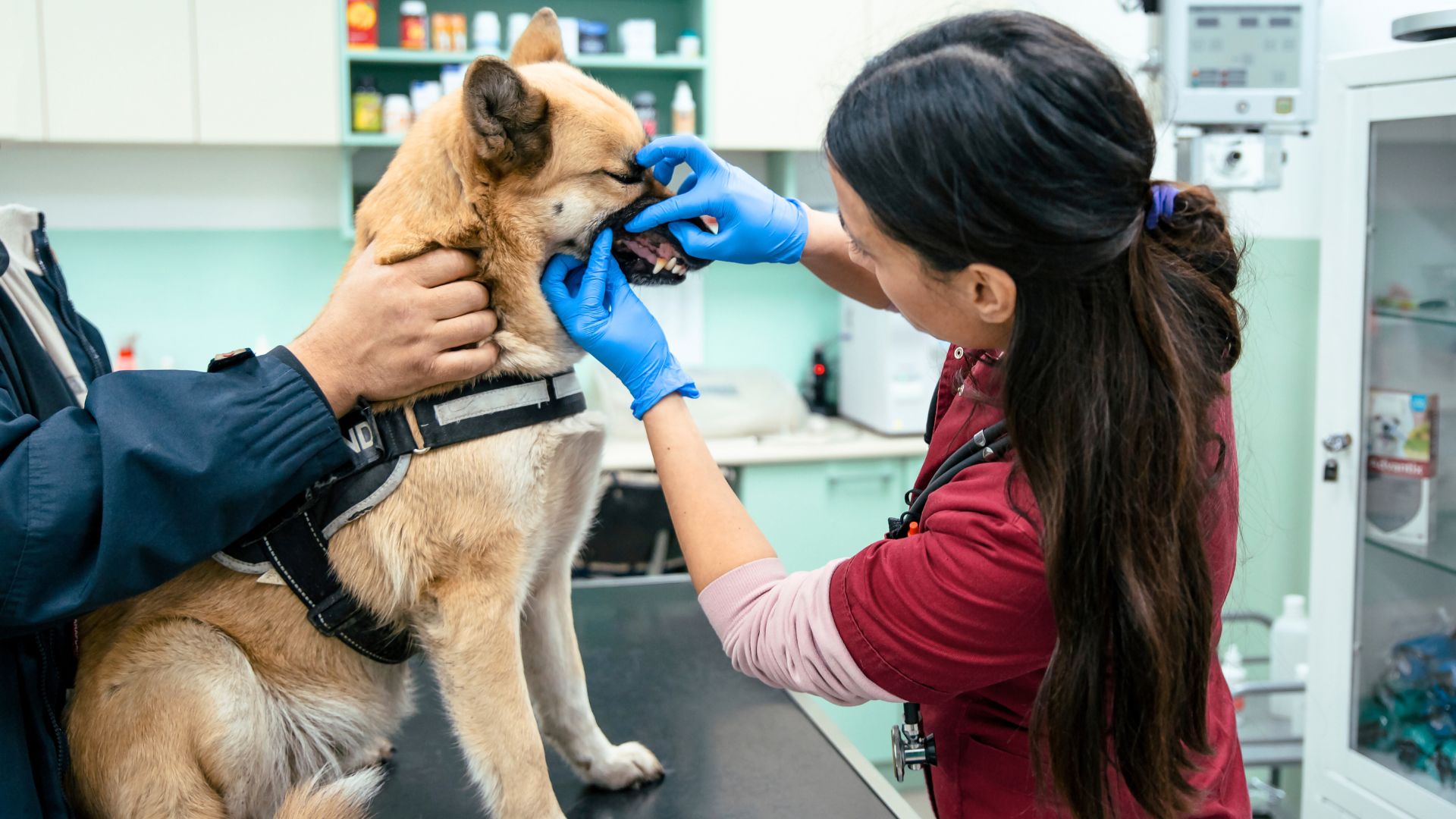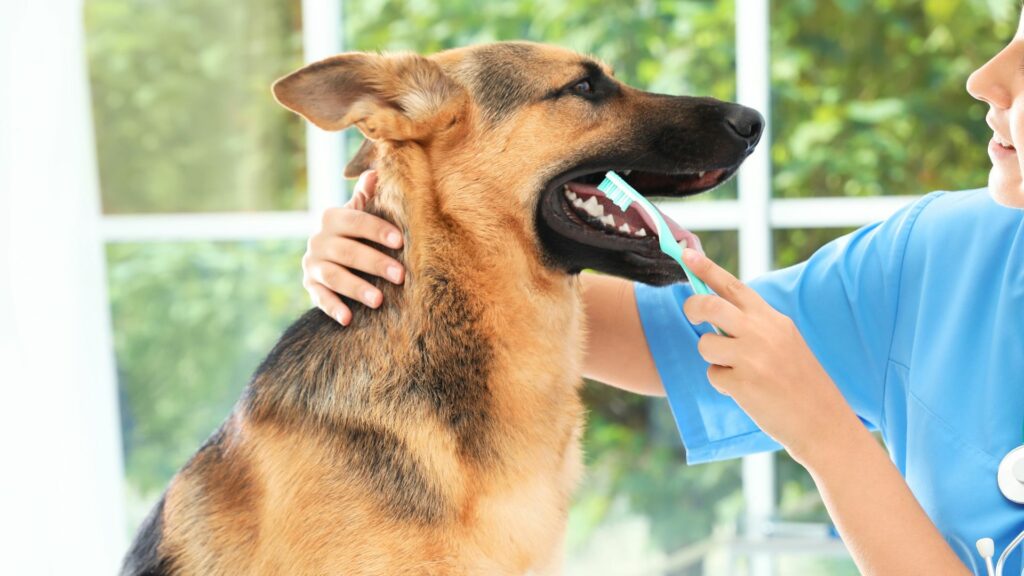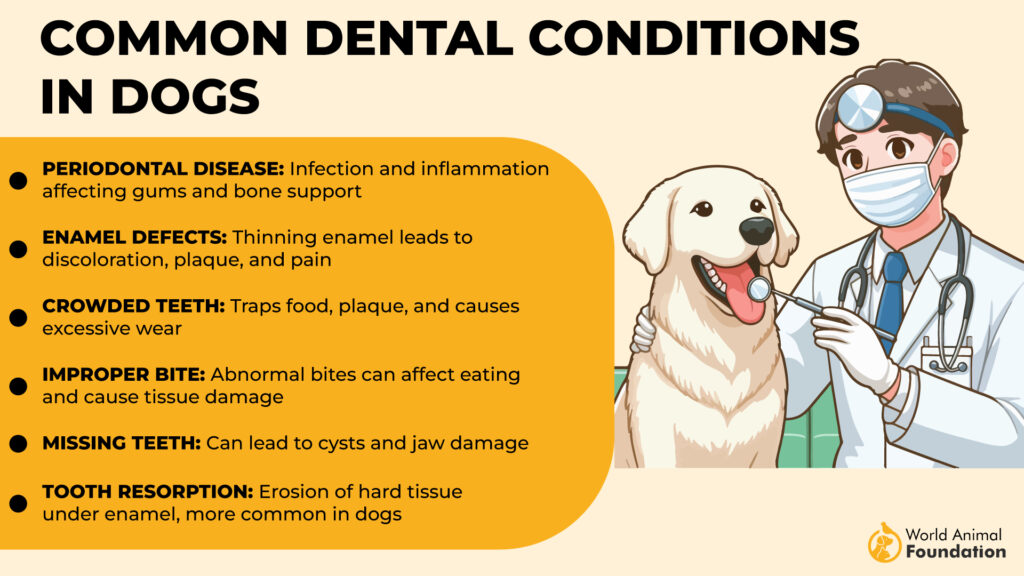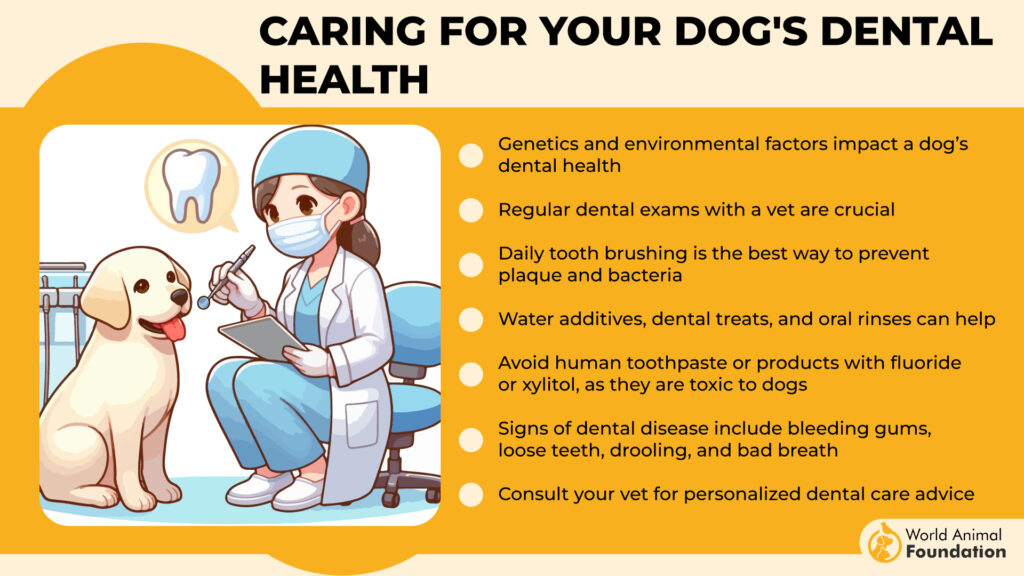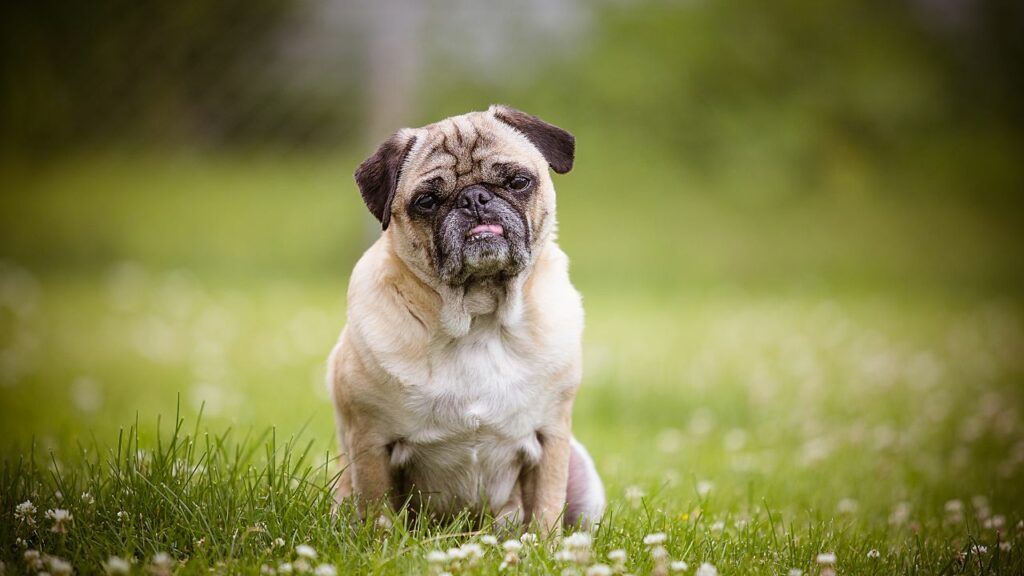Sparkling eyes and wagging tails can hide a painful secret: dental disease. While all dogs are susceptible, certain breeds are genetically predisposed to plaque buildup, gum inflammation, and tooth loss. Ignoring their dental health can lead to serious health issues beyond bad breath. This article explores seven dog breeds particularly prone to dental disease, helping owners understand the importance of preventative care and early detection. From tiny Yorkies to majestic German Shepherds, learn how to keep your canine companion’s pearly whites healthy and their smiles bright.
Dental disease is one of the most common issues veterinarians encounter in dogs, and it’s more widespread than many pet owners realize. According to Cornell University, even if your dog’s teeth look clean, studies show that 80-90% of dogs over the age of 3 have some level of dental disease. This condition is especially common in smaller breeds and becomes more frequent as dogs age.
Unfortunately, dental problems often go unnoticed until they are quite advanced because dogs rarely show obvious signs of discomfort, leaving it up to their families and veterinarians to catch the issue early.
The real tragedy is that dental disease can cause significant pain and discomfort for weeks or even months, and yet many dogs suffer in silence. Poor dental health doesn’t just affect the mouth—it can lead to serious complications, like kidney and heart disease.
This makes it vital for all pet parents to stay proactive when it comes to their dog’s dental care. To help raise awareness, we’ve put together a list of 7 dog breeds that are most prone to dental disease, so you can take extra steps to protect your furry friend’s health and well-being.
Common Dental Conditions in Dogs
Dogs can experience many of the same oral issues as humans, but the most common dental problem in dogs is periodontal disease, while in people it is tooth decay or cavities. Here are some common dental conditions seen in dogs:
- Periodontal Disease: An infection and inflammation of the gums and bones that support the teeth.
- Enamel Defects: Thinning of the enamel which can lead to discoloration, plaque buildup, and pain.
- Crowded Teeth: Teeth that are too close together, trapping food and plaque, and causing excessive wear.
- Improper Bite: An abnormal bite that can make eating difficult and cause tissue damage.
- Missing Teeth: This can result in cysts and even damage to the jawbone.
- Tooth Resorption: Erosion of the hard tissue beneath the enamel, which is more commonly seen in dogs.
Dog Breeds Most Prone To Dental Disease
1. Boxers
That adorable Boxer face is hard to resist! Boxers are bright, energetic, and form close bonds with their families. With proper socialization and leadership, they make cheerful and dependable companions. However, Boxers are more prone to dental issues than other breeds.
Regular dental checkups are essential to help prevent problems like plaque buildup and gum disease from getting out of control. Dental disease in Boxers usually starts with tartar forming on their teeth, which can lead to gum infections and tooth loss if left untreated.
More concerning, poor dental health can affect your Boxer’s kidneys, liver, heart, and joints, potentially shortening their lifespan by one to three years. Routine checkups and cleanings can help keep your Boxer’s teeth healthy and prevent these serious health risks.
2. Yorkies
The tiny Yorkshire Terrier, or Yorkie, is a lively and affectionate companion known for its big personality. Despite their small size, Yorkies are full of energy and love to be entertained. However, small toy breeds like Yorkies are notorious for dental issues, particularly when their baby teeth erupt on top of their adult teeth, creating “snaggle teeth.” This can trap food and debris, putting your Yorkie at risk for gum disease.
According to PetMD, Yorkies are prone to dental disease, making regular dental care essential. To keep your Yorkie’s teeth healthy, brush them daily with a vet-recommended toothbrush and toothpaste.
Talk to your vet about how often your dog needs a professional cleaning and whether additional steps, like dental chews, a dental diet, or water additives, are recommended to help protect your Yorkie’s teeth. Regular dental care can go a long way in keeping your Yorkie happy and healthy.
3. Shih Tzus
The Shih Tzu, whose name means “little lion,” is a small and affectionate breed from Tibet, known for their friendly and active nature. Like many brachycephalic (short-nosed) breeds, Shih Tzus are more prone to dental issues due to overcrowding of their teeth. With 42 teeth crammed into a smaller space, plaque and tartar can build up more easily, leading to dental problems that are harder to reach and clean.
If their teeth aren’t regularly and properly cleaned, Shih Tzus can develop halitosis (bad breath), tooth decay, gingivitis, periodontal disease, loose teeth, and even tooth loss. These conditions can cause significant discomfort and pain.
The main culprit is plaque, a sticky substance that forms on their teeth continuously and can turn into tartar within just 3 to 5 days, making it crucial to maintain regular dental care to keep your Shih Tzu healthy and comfortable.
4. Dachshunds
Dachshunds, with their long bodies, short legs, and bold personalities, are known for being brave, affectionate, and vocal companions. While they make wonderful pets, their elongated bodies make them prone to musculoskeletal issues, and their narrow, elongated snouts increase their risk for dental problems, specifically periodontal pockets.
Periodontal pockets form when bacteria gets trapped between the gum and tooth, causing the gum tissue to pull away from the tooth and leading to decay, particularly around the upper canines.
If this happens, a deep root planing procedure may be needed to clean the area and help the gum tissue heal. According to WebMD, regular dental care is essential for Dachshunds, as keeping their teeth and gums healthy can prevent tooth loss and more serious health issues, such as kidney, liver, heart, and joint problems.
5. Labradors
The lovable Labrador Retriever, with its sweet face and friendly nature, continues to be one of America’s most popular dog breeds. Labs are known for their outgoing and high-spirited personalities, always ready for a bit of fun and adventure. Unlike smaller breeds that are more prone to periodontal disease, larger dogs like Labradors are more likely to experience tooth fractures due to their active lifestyle and strong jaws.
Labs, being curious and playful, often end up with dental issues like fractured or worn teeth. Hard chew toys and tennis balls can increase the risk of damaging their teeth, so it’s best to avoid these and always keep an eye out for signs of a fractured or discolored tooth.
If you notice any dental issues, consult your vet. Fractured teeth with nerve exposure often require surgical extraction or a root canal to preserve the tooth’s function and prevent further complications. Regular dental care is key to keeping your Lab’s smile healthy and strong!
6. Chihuahuas
The Chihuahua, known for its tiny size and distinctive “apple” shaped head, may weigh no more than 6 pounds, but it faces big dental challenges. Due to their small heads, Chihuahuas often have crowded teeth, which can make it harder to keep them clean. Just like in people, this tooth crowding can lead to plaque buildup that’s difficult to remove.
If plaque isn’t taken care of, it hardens into tartar, leading to painful dental problems and infections. If left untreated, these issues can escalate from discomfort to serious, even life-threatening, health concerns. Signs like bad breath, plaque, tartar, and gingivitis are indicators that your Chihuahua’s dental health needs attention.
Bacteria from dental problems can spread to your Chihuahua’s bones and even enter the bloodstream, potentially causing damage to vital organs like the kidneys, liver, joints, or heart. Regular dental care is essential to prevent these serious conditions and keep your Chihuahua healthy and happy.
7. Pugs
Pugs, with their adorable, short faces and loving personalities, have been bred to be delightful companions. However, their trademark pushed-in face can lead to dental issues, particularly periodontal disease. Like other brachycephalic (short-nosed) breeds, Pugs often suffer from malocclusions, where their teeth don’t line up correctly.
While a misaligned bite may seem harmless, it can cause discomfort and trauma when the teeth close harshly on each other. Crowded teeth are a common problem for Pugs. The close positioning of their teeth creates spaces where food and bacteria can easily become trapped, leading to plaque buildup and periodontal disease.
In some cases, veterinarians may recommend tooth extractions to create more space in the mouth and improve overall dental health. Regular dental care is key to keeping your Pug’s teeth and gums healthy and preventing painful issues down the line.
Conclusion
Maintaining your dog’s dental health is essential, especially for small dog breeds that are more prone to common dental disease due to overcrowded teeth and other factors. Regular daily tooth brushing and routine professional dental cleanings are key steps that dog owners can take to prevent their pets from developing gum disease or more serious conditions like periodontal disease.
Issues such as persistent deciduous teeth, where baby teeth don’t fall out properly, can also contribute to dental problems and require attention from a veterinary dentist.
For dogs at higher risk, such as those with all those teeth crammed into a small mouth, it’s crucial to work closely with a board-certified veterinary dentist to manage and prevent disease in dogs. Early detection and proper care can help keep your pet’s mouth healthy and reduce the risk of long-term damage caused by poor dental hygiene. Staying proactive will not only benefit your dog’s teeth but also their overall well-being.
Dental disease in dogs is a serious yet often overlooked health issue. While all dogs are susceptible, certain breeds like small brachycephalics and those with crowded teeth are predisposed. Prioritizing dental hygiene through regular brushing, dental chews, and professional cleanings is crucial for preventing painful infections, tooth loss, and even more severe health complications. Choosing breeds less prone to dental issues is a factor to consider, but ultimately, diligent care is the best defense against dental disease for any canine companion. A healthy mouth leads to a happier, healthier dog.

